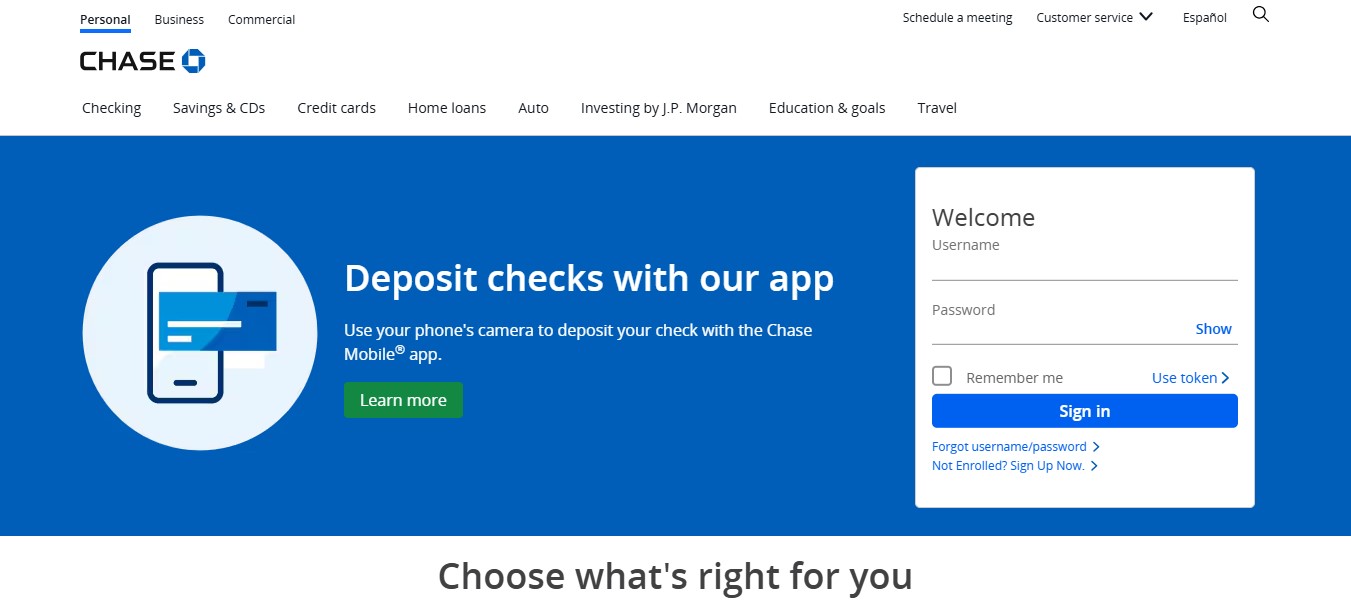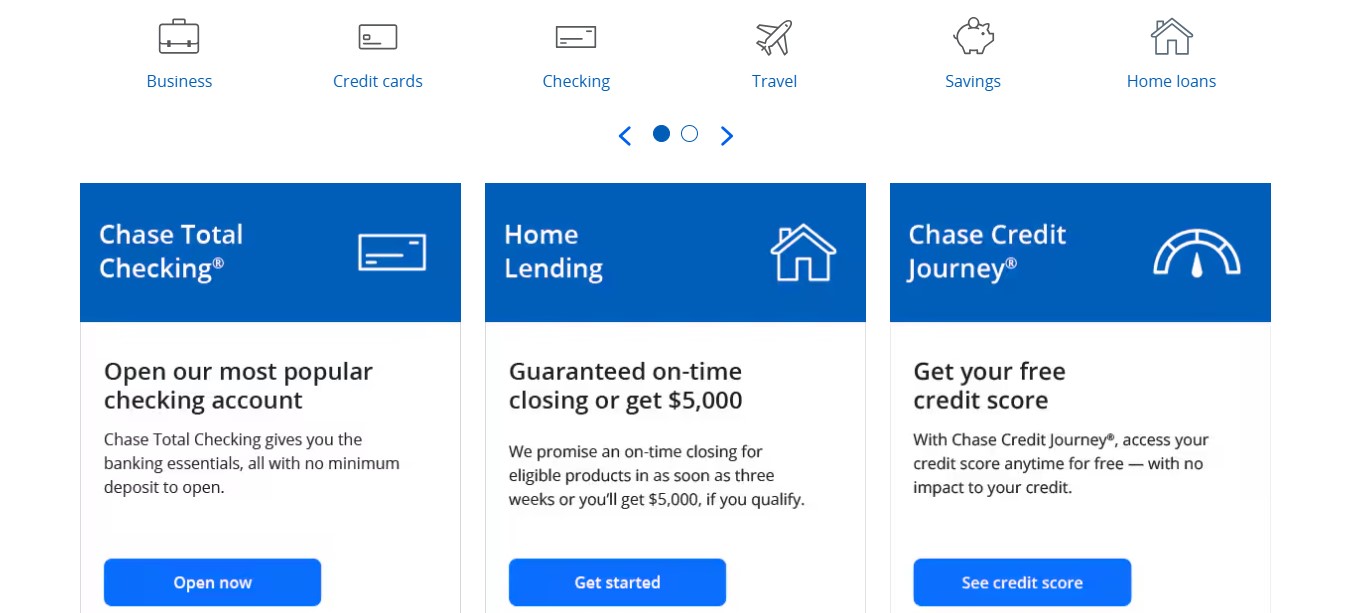Key takeaway: Chase Bank in the UK does not currently support cryptocurrency trading, storage, or direct payments to crypto exchanges. The bank has implemented strict measures restricting transactions it identifies as related to digital assets, including declining transfers or card payments to certain crypto platforms.
Through Bitpanda, users can fund their accounts using alternative methods such as bank transfers from other supported accounts or third-party payment providers, effectively bypassing Chase’s direct restrictions while remaining fully compliant with FCA regulations. Once funded, users gain access to hundreds of cryptocurrencies, including Bitcoin, Ethereum, and Solana, alongside tokenised commodities and ETFs. It offers instant GBP deposits and withdrawals, competitive fees, and strong regulatory oversight, ensuring that every transaction aligns with UK financial standards.
If you want to learn how to buy crypto with Chase in the UK, this guide provides simple, beginner-friendly steps, realistic expectations, and the regulatory context to ensure a safe and responsible approach.
What is the Chase UK Policy on Crypto Transactions?
Chase Bank UK has a strict policy that prohibits customers from making payments related to cryptocurrency. This means that any transaction, whether by debit card, bank transfer, or standing order, identified as being linked to a crypto exchange or platform will be automatically blocked. The policy was introduced in October 16, 2023 as part of the bank’s broader effort to protect customers from rising crypto-related scams and fraudulent schemes, which had become increasingly common in the UK. According to Chase, this decision aligns with its commitment to ensuring customer safety and compliance with UK financial regulations. As a result, Chase customers cannot use their accounts to directly fund crypto purchases or investments.
Is it Possible to Buy Crypto Directly with Chase Bank from the UK?
It is not currently possible to buy cryptocurrency directly with Chase Bank in the UK. The bank does not support crypto trading, storage, or payments to digital asset exchanges. This means that any attempt to use Chase debit or credit cards, or even direct bank transfers, for crypto-related purchases will likely be declined. Therefore, while you cannot use your Chase account for buying crypto directly, you can still explore regulated and secure alternatives, such as funding an FCA-approved exchange like Bitpanda through an intermediary account or payment method, to safely access the crypto market within UK financial regulations.
How to Buy Crypto with Chase Bank in 6 Steps
- Create an Account on a Regulated Exchange
Begin by signing up on a trusted and FCA-registered crypto exchange such as Bitpanda or eToro. Complete the verification process by providing valid identification to comply with UK Know Your Customer (KYC) regulations. - Verify Your Identity
Most regulated exchanges require ID verification for security and compliance purposes. Upload your government-issued ID and proof of address to activate your trading account fully. - Add a Funding Method
Since Chase Bank restricts direct crypto-related payments, link an alternative payment method. You can use another UK bank account that allows crypto transactions, a digital payment platform like PayPal (if supported), or other approved third-party payment options available on Bitpanda. - Deposit Funds into the Exchange
Transfer GBP into your Bitpanda account using the funding method you’ve chosen. Bitpanda supports fast and secure deposits, allowing you to add funds via bank transfer or supported payment partners. - Buy Your Preferred Cryptocurrency
Once your deposit reflects in your Bitpanda account, you can select from a range of cryptocurrencies such as Bitcoin, Ethereum, Solana, or others. Review the transaction details, confirm the amount, and complete the purchase. - Secure and Monitor Your Assets
After buying your crypto, be sure to store it either in Bitpanda’s integrated wallet or by transferring it to a private wallet for added control. Keep track of your investments and remain informed about UK tax obligations related to crypto trading.
Fees and Costs When Buying Crypto with Chase
Bitpanda incorporates its trading fees directly into the price you see when buying or selling cryptocurrency, known as the premium. This premium ranges between 0.00% to 2.49% for most cryptocurrencies, though Bitcoin is fixed at 0.99%. The platform allows free fiat deposits and withdrawals, including GBP, using supported payment methods. There are no custody or holding fees for storing digital assets on the platform. However, when transferring crypto from Bitpanda to an external wallet, users must pay the standard blockchain network fee, which varies depending on network traffic and the specific cryptocurrency. While Bitpanda’s embedded premium makes transactions straightforward, it’s important to note that there can be a small spread between the quoted price and the live market rate.
Gemini’s fees vary depending on the interface and payment method used. For regular instant trades on the standard Gemini app, the total transaction fee can reach approximately 1.49%, while ActiveTrader users benefit from a lower, volume-based maker-taker fee structure ranging between 0.00% and 0.40%. Depositing funds via bank transfer is free, but debit card deposits attract a higher fee of around 3.49%. Withdrawals to UK or international bank accounts through standard transfer methods are generally fee-free, although wire transfers may incur a fixed charge of about $25. Crypto withdrawals to external wallets include network fees, which are paid directly to blockchain validators and fluctuate based on network activity. Gemini also offers institutional-grade custody services, which may carry an annual storage fee of around 0.40%, although this does not apply to regular retail accounts.
eToro
eToro applies a flat 1% commission on every crypto trade, both when buying and when selling. This fee is automatically included in the displayed price, ensuring transparency at the point of purchase. The platform charges no deposit fees for supported currencies but imposes a $5 withdrawal fee on every fiat withdrawal from USD investment accounts to external accounts. For users dealing in GBP, currency conversion fees may apply when converting between GBP and USD, around 1.5% or 3.0% depending on the payment method. eToro also enforces an inactivity fee of $10 per month if an account remains unused for 12 consecutive months. Transferring crypto between the main trading platform and the eToro Money Wallet attracts a 2% transfer fee, while sending assets to external wallets incurs only the necessary blockchain network charges.
Most Common Ways to Deposit from Chase to Crypto Exchanges
ACH or Wire Transfers
In the UK, using ACH or wire transfers to deposit funds from Chase Bank to crypto exchanges is no longer a straightforward option. As of October 16, 2023, Chase UK blocks all outgoing payments to crypto-related platforms, including wire transfers, Faster Payments, and debit card transactions. If you try, the payment will likely get declined automatically, or your account might be flagged for a quick security review.
The good news is, there’s still a workaround. You can transfer your money from Chase to another UK bank that supports crypto-related payments, and then use that account to deposit funds into your chosen exchange via Faster Payments or SEPA transfer. It’s an extra step, but it keeps you within Chase’s rules and ensures your transactions stay safe and compliant. At the moment, Chase allows crypto purchases only indirectly through these third-party routes, not by sending money straight to crypto exchanges.
Chase Debit Card
Using a Chase debit card to deposit funds into a crypto exchange is one of the most common methods globally, but in the UK, this process has become highly restricted as well. However, using indirect methods, such as linking your Chase debit card to third-party payment processors or fintech wallets that remain unaffected by Chase’s crypto restrictions, though these transactions may trigger additional security reviews, verification requests, or temporary holds on the account. It’s also important to note that such methods carry a degree of uncertainty, as Chase may still decline the payment after review. Before attempting to use a Chase debit card for deposits, you should verify whether Chase allows crypto purchases under the latest UK banking guidelines and consider using FCA-regulated alternative payment options to stay compliant and avoid transaction interruptions.
What is Chase Bank?
Chase Bank is a globally recognised financial institution owned by JPMorgan Chase & Co., one of the largest and most trusted banking groups in the United States. With a history spanning over two centuries, JPMorgan Chase serves more than 80 million consumers and millions of businesses worldwide, offering a full range of financial products, including personal and business banking, credit cards, loans, and investment services. In the United Kingdom, Chase Bank operates as a digital-only retail bank under the same parent company, having launched in 2021 to bring a modern, app-based banking experience to UK customers. Despite having no physical branches, Chase UK provides full-service digital banking through its secure mobile app, offering current accounts, savings accounts, cashback rewards, and round-the-clock customer support. Its rapid growth has made it one of the most downloaded banking apps in the UK, attracting over 2 million customers within a short period. However, while Chase UK delivers convenience and innovation in everyday banking, it does not yet support cryptocurrency-related transactions. This means users cannot directly buy Bitcoin with a Chase bank account or invest in crypto using their Chase bank account.
Conclusion
You’ve just gone through a clear, step-by-step guide on how to buy crypto with Chase in the UK, even with the bank’s current restrictions. For UK residents, this means you’re no longer left wondering how to safely enter the crypto space using your Chase account. Keep in mind that Chase doesn’t support direct crypto payments, so sticking to FCA-regulated exchanges like Bitpanda is your safest route.











 usdt
usdt xrp
xrp

